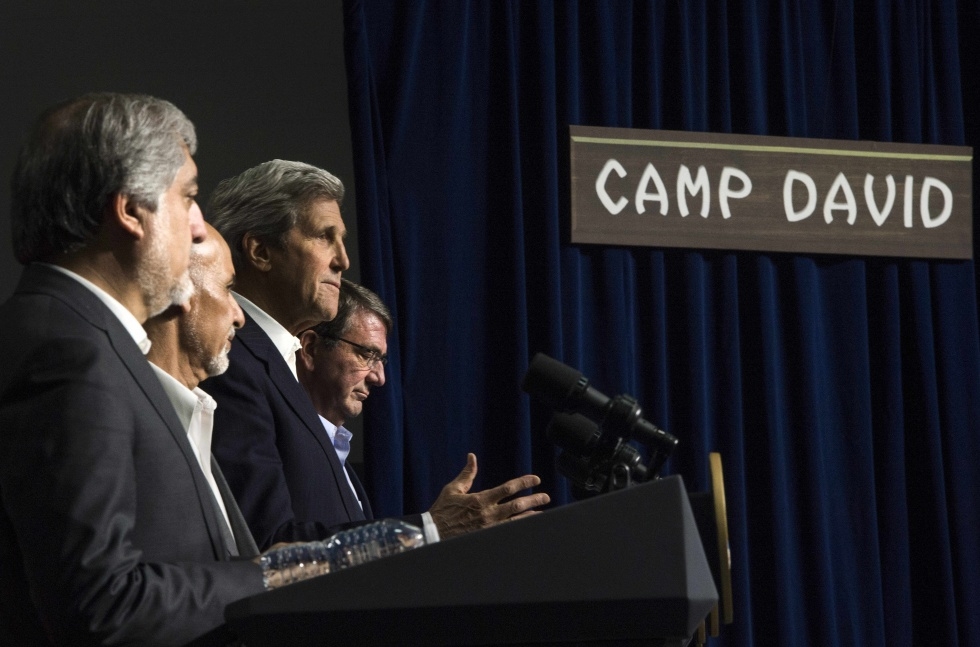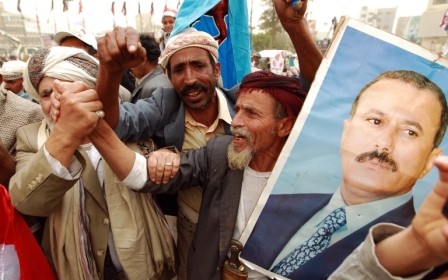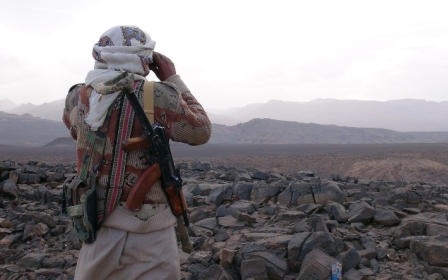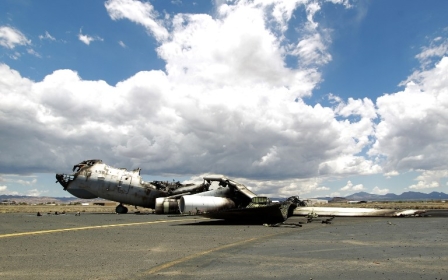Saudi's King Salman declines invite to attend US security conference

King Salman of Saudi Arabia has declined an invitation to attend an important US-hosted summit, as tensions continue to mount between the two countries over the Iran-US nuclear deal.
Crown Prince Mohammed bin Nayef and Deputy Crown Prince Mohammed bin Salman, the King's son, are instead expected to attend the Camp David summit.
The snub marks a failure for US President Barack Obama as the summit had been widely seen as an attempt to rebuild trust with the Gulf monarchies – instead, only two heads of state, Kuwait's Sabah Al-Ahmad Al-Jaber Al-Sabah and Qatar's Sheikh Tamim Bin Hamad Al Thani will attend.
Sultan Qaboos bin Said al Said of Oman was reportedly unwell, as was the United Arab Emirates' President Khalifa bin Zayed al Nayan, who instead sent his brother Mohammed bin Zayed al Nayan.
Saudi Arabia's new Foreign Minister Adel al-Jubeir said Salman would miss the meeting "due to the timing of the summit, the scheduled humanitarian ceasefire in Yemen and the opening of the King Salman Center for Humanitarian Aid.”
US officials insisted there was nothing unusual about the King's absence, though they had reportedly not been aware of the decision until Friday.
"This is not in response to any substantive issue," insisted one senior US administration official.
The White House, meanwhile, announced that Obama and Salman had spoken by telephone, as the US too tried to downplay differences.
Salman called Obama to "express his regret at not being able to travel to Washington," the White House said.
"The two leaders emphasized the strength of the two countries' partnership, based on their shared interest and commitment to the stability and prosperity of the region."
'Mutual security'
The Camp David conference was convened in the wake of increasing violence and instability in the Middle East.
One US official said that the intention of the meeting was to try and create a common defence plan for the Gulf region, with a mind to countering the influence of Iranian proxy groups, such as Lebanon's Hezbollah.
"This focus on mutual security extends to various areas – counterterrorism, maritime security, cybersecurity and ballistic missile defense," the official said, according to AFP.
The Gulf leaders had been pushing for the US to supply them with advanced weapons like F-35 stealth fighters and a guarantee in writing to secure them against future threats from Iran.
US officials had also reportedly been considering offering the Saudis “bunker-busting missiles”, which until now had only been provided to Israel, as part of securing the latter's military superiority in the region.
The Gulf nations have been particularly anxious over what they see as increasing Iranian influence in the Middle East.
A Saudi Arabia-led bombing campaign against Houthi rebels in Yemen – whom Saudi accuses of being supported by Iran – have further increased tensions, particularly following attacks on Saudi territory last week.
However, talks between Iran and the P5+1 countries over Iran's nuclear programme have led to a relaxing of relations between the West and the Islamic Republic, which has alarmed US allies in the region, particularly Saudi Arabia and Israel.
“As upset as the Saudis are, they don’t really have a viable alternative strategic partnership in Moscow or Beijing,” said Karim Sadjadpour, an Iran expert at the Carnegie Endowment for International Peace.
“There’s a growing perception at the White House that the US and Saudi Arabia are friends but not allies, while the US and Iran are allies but not friends.”
New MEE newsletter: Jerusalem Dispatch
Sign up to get the latest insights and analysis on Israel-Palestine, alongside Turkey Unpacked and other MEE newsletters
Middle East Eye delivers independent and unrivalled coverage and analysis of the Middle East, North Africa and beyond. To learn more about republishing this content and the associated fees, please fill out this form. More about MEE can be found here.




